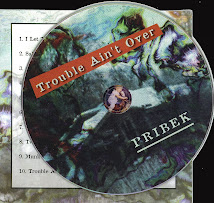A few weeks ago I gave a reading at Benedictine College in Atchison, Kansas for Sister Mary Faith, who is now 94. She always made Bill–and me, too–welcome there on many occasions. This particular reading, planned for a Sunday morning, was scheduled in an exposed area of the Student Affairs Building, and so we moved the reading to the Exercise Room, for coziness.
We could feel many presences during the reading.
The house where Amelia Earhardt grew up is only a few blocks away, and this patch of the Missouri River bank is exactly where Lewis and Clark's group camped one night. And of course Bill Stafford's presence we could feel. Someone said, "Hutchinson is only an hour away." Bill's mother had prepared all her children for entering the world by remarking, when the occasion came to consider the value of people in her family, "Not much." Of course, if one's mother says that, one will probably consider the opposite proposition as well. . .that perhaps we were exchanged in the cradle and we really are of royal birth. It's important to be able to say, as Bill remarks at the end of "A Story That Could Be True," "Maybe I'm a king."
A woman has to remember to think, "Maybe I'm a queen." Of course in saying that one has to be sure to include the word "maybe"–that's to avoid being taken away. This sentence is important for our health. This sentence is the one we need to memorize, and everyone in that exercise room, sitting among the Nordic Traks and the weight lifting devices, felt the truth of it.
We also had the job of holding our own against Bill Stafford's poems. If we listen to another's truth too much, we lose our own, or we lose listening. So that day we had to remember Clinton and his problems as well. We can listen and at the same time not be taken in by someone else's opinion.
Some of us recalled Bill's father, who was such a powerful listener:
My father could hear a little animal step
or a moth in the dark against the screen.
And every far sound called the listening out
into places where the rest of us had never been.
Inside a poem Bill often placed himself out in the raggedy mountains or out in the raggedy grasses or inside some field of the mind, and there he felt he could listen even better.
Sometime when the river is ice
ask me mistakes I have made.
Ask me whether what I have done is my life...
I will listen to what you say.
You and I can turn and look at the silent river and wait.
We know the current is there, hidden . . .
At this moment in the poem, he's listening to the current moving underneath the ice. What is the gist of the current of our long life? Now just when you think he will express all that for us, he goes back to listening:
Whatever the river says, that's what I say.
All content of this site, unless otherwise noted, is copyright ©2001 Robert
Bly. All Rights Reserved. Any duplication, in any form without the written
consent of the copyright





No comments:
Post a Comment